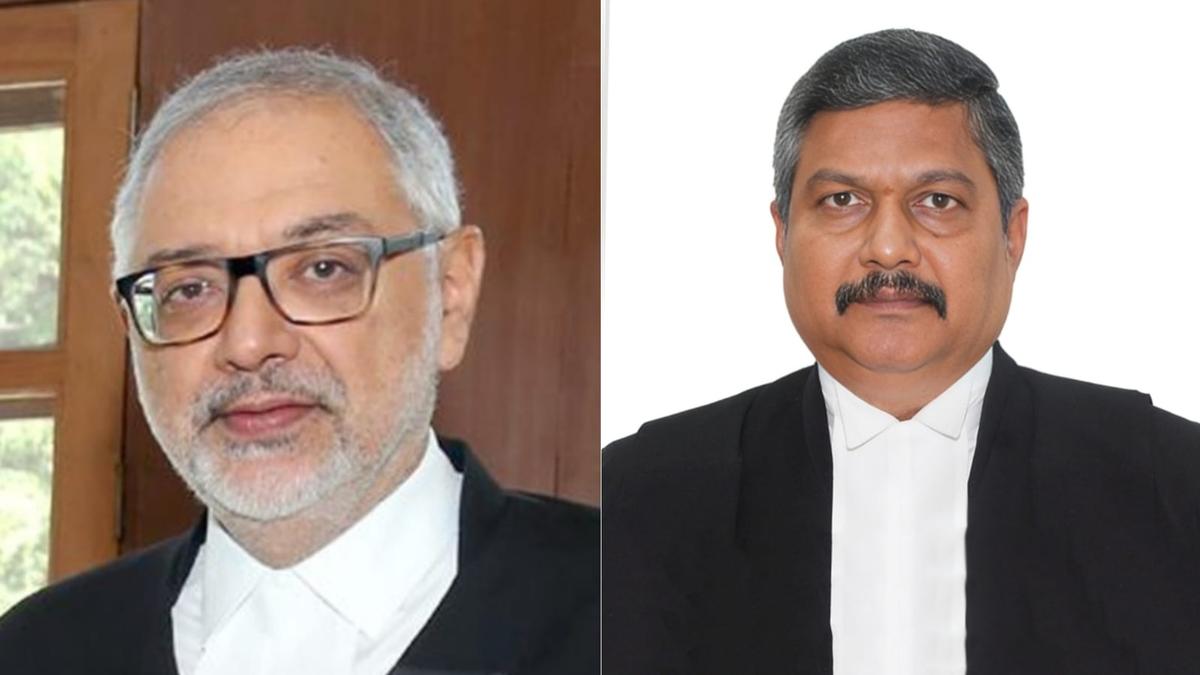High Court Judicial Appointments: A Deep Dive into Recent Changes
The Indian judicial system recently underwent significant changes with the appointment of new Chief Justices and the elevation of additional judges to permanent positions. These key appointments impact the efficiency and fairness of the court system, shaping the lives of countless individuals. Let's delve into the specifics of these pivotal appointments and explore their potential implications.
The New Chief Justices: A Fresh Perspective
Justice G.S. Sandhawalia's appointment as the Chief Justice of the Himachal Pradesh High Court marks a notable shift in the judiciary. Previously serving as a judge at the Punjab and Haryana High Court, his expertise and experience will bring a unique perspective to the Himachal Pradesh High Court. Justice Sandhawalia's appointment follows the recommendation from the Supreme Court Collegium on September 17, 2024, designed to ensure seamless leadership transition after Justice Rajiv Shakdher's retirement on October 18, 2024. This meticulous planning highlights the judiciary’s commitment to maintaining judicial continuity and efficiency. The transition underscores the need for a well-structured succession plan within the judicial system, ensuring minimal disruption in the legal proceedings across the state.
The Collegium System: Maintaining Judicial Independence
The selection process, guided by the Supreme Court Collegium's recommendations, is a critical step in ensuring the independence and impartiality of the judiciary. This process is an essential cornerstone of a just and fair legal system and ensures the best candidate will lead the judiciary in the state.
Similarly, Justice Narender G.'s appointment as the head of the Uttarakhand High Court is another noteworthy development. Currently serving as a judge of the Andhra Pradesh High Court, Justice Narender G.'s experience will bring a fresh perspective to the Uttarakhand High Court, further promoting efficient dispute resolution. His appointment, recommended by the Supreme Court Collegium on September 24, underscores the importance of experience and expertise in the judiciary's higher echelons. The high court will likely see significant progress under his leadership, ensuring swift and unbiased justice delivery. The process highlights the judicial system's robust mechanisms for choosing experienced judges capable of promoting equitable justice.
Elevation of Additional Judges: Strengthening Judicial Capacity
Beyond the appointment of new Chief Justices, the elevation of additional judges to permanent positions in the Delhi and Karnataka High Courts reflects the judiciary’s focus on bolstering its strength. The appointments of Justices Shailender Kaur and Ravinder Dudeja to the Delhi High Court bring greater expertise, capacity, and efficiency to the already dynamic bench. Their elevation follows the standard two-year probationary period as additional judges.
Expanding Bench Strength: Improving Case Management
Four additional judges of the Karnataka High Court also received permanent appointments. These elevations address an important factor in judicial efficiency: the ever-growing number of cases. By adding judges, courts can better address the growing backlog and ensure speedier processing, allowing those waiting for their turn to have a much faster resolution in their pending legal issues. The timely elevation of these additional judges, coupled with others across other states, significantly contributes to alleviating the immense burden that India's judicial system regularly confronts, reducing the overall judicial case load. These additional judicial appointments are a direct action designed to expedite the legal resolution process for cases.
Looking Ahead: Ensuring Judicial Excellence
These appointments demonstrate a commitment to maintaining a strong and effective judicial system. By appointing highly experienced and qualified individuals to leadership roles and elevating talented judges within their systems, the system can achieve effective improvements that benefit everyone. This proactive strategy positions the court system for continuous improvement and advancement in justice. Judicial reforms ensure both stability and progress for everyone. The judiciary’s actions highlight a deliberate focus on streamlining legal processes, thereby improving outcomes for those participating in the system.
Continued Judicial Reform: Focus on Transparency and Efficiency
The steps taken, focused on leadership appointments and additional judge elevation, illustrate that progress is being made and shows that the commitment towards reform is ongoing. The transparency of the Collegium system remains crucial in promoting trust and maintaining judicial independence, which is critical for delivering fair and impartial justice in all cases. Looking ahead, continuous judicial reform will be critical to effectively meeting the nation's justice needs.
Take Away Points
- The recent appointments of Chief Justices and elevation of additional judges demonstrate the Indian judiciary’s dedication to maintaining its integrity and upholding judicial excellence.
- These appointments are vital steps in addressing the substantial burden of pending cases, thereby enhancing the efficiency of the judicial system.
- The role of the Supreme Court Collegium in ensuring fairness and transparency in judicial appointments remains of paramount significance.
- The overall steps taken towards reform, modernization, and better court efficiency shows significant promise and instills confidence in its overall functionality and future growth.




